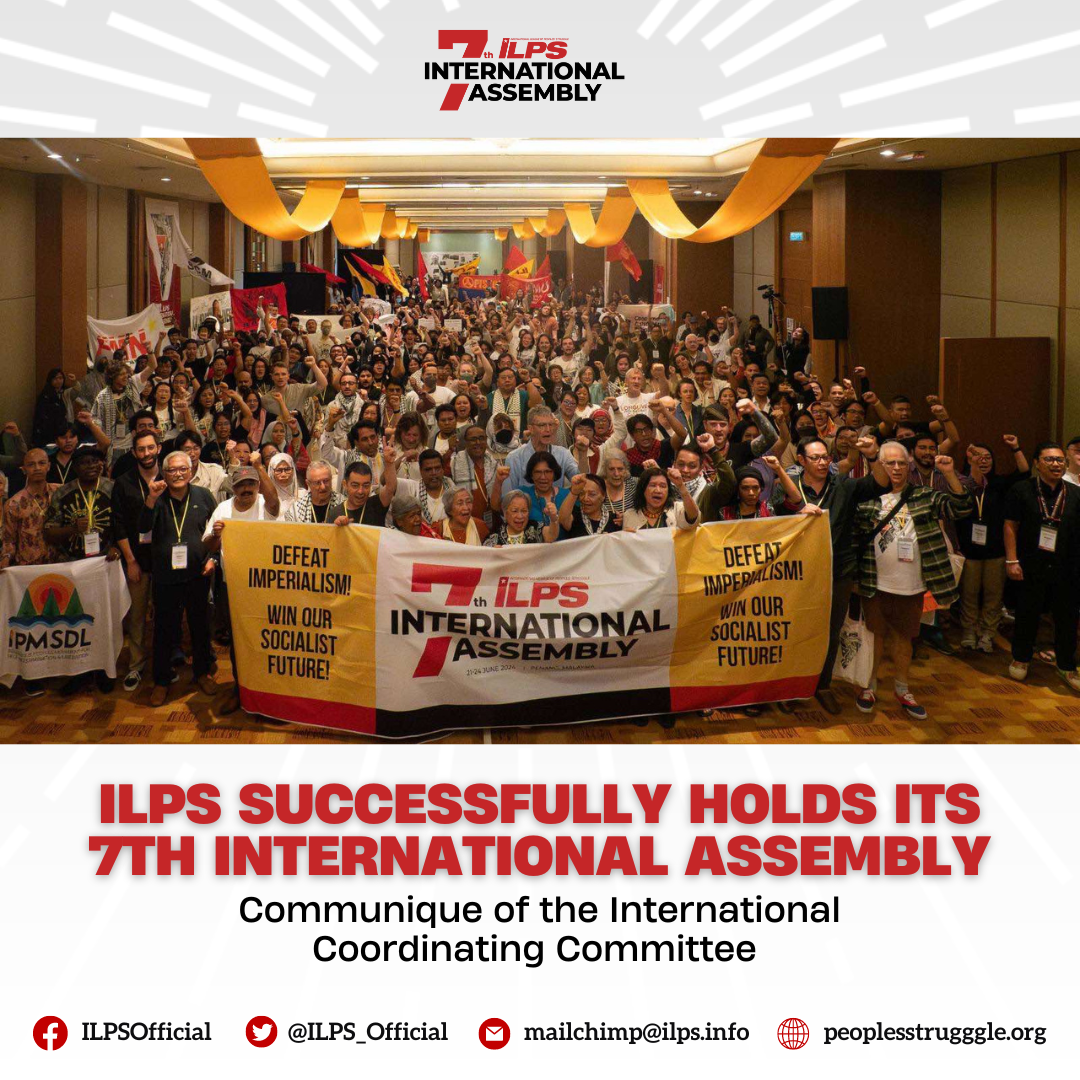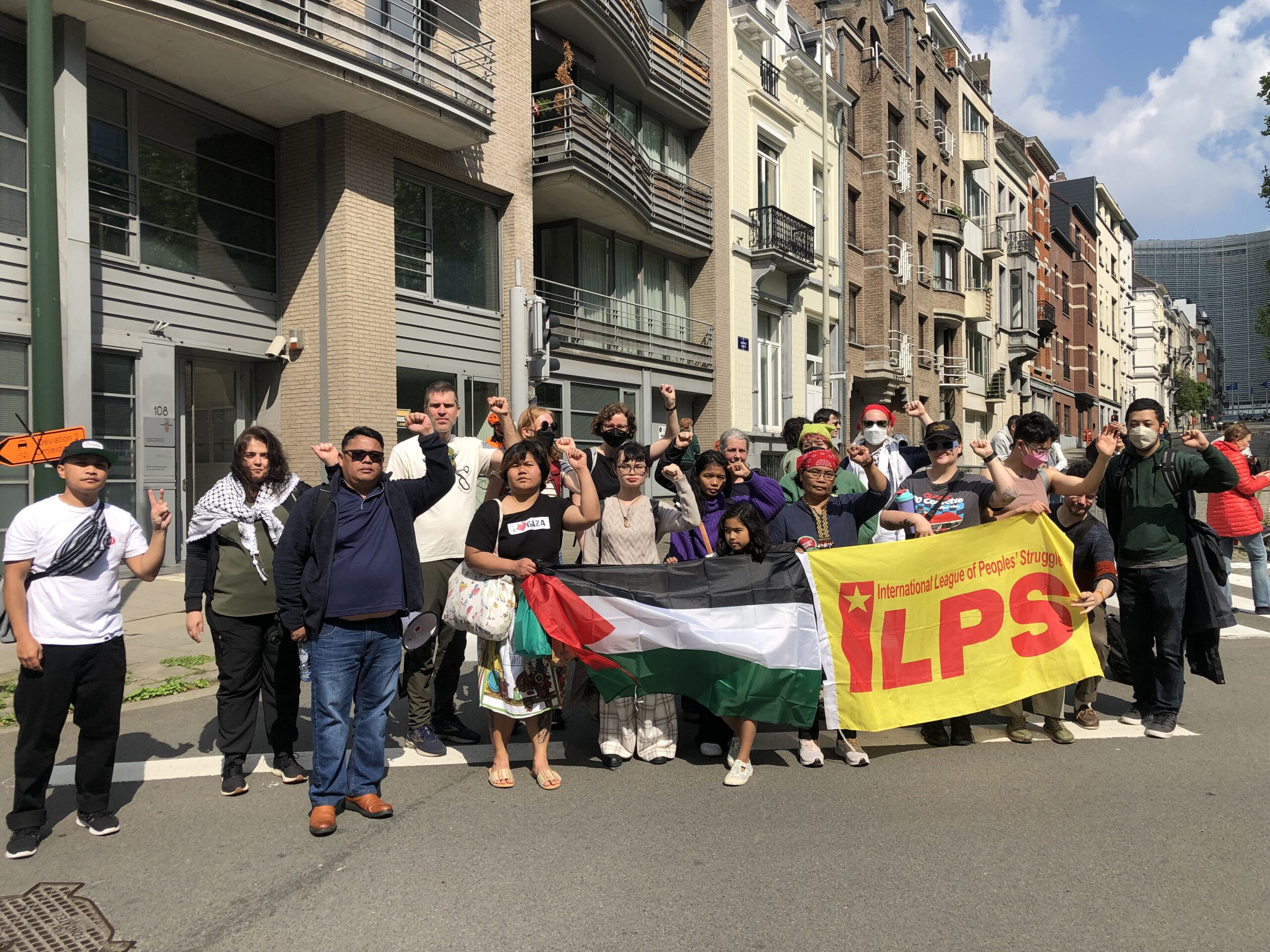The real rift is deepening: the privileges of those at the top against the anger of those at the bottom.
While at the top they continue to give the thread for the candidacies and prepare the electoral circus for the change of government, at the bottom the anger makes itself felt. The conditions in which we have been living for a long time are no longer bearable, with an inflation that increases every time we go to the kiosk, we can’t get a job, and when we do, the salaries are not enough. In addition, there is a lack of budget for public policies to improve education and health conditions.
As if this were not enough, the militarization of the neighborhoods and repression are commonplace. It is no coincidence, this is the product of a policy designed to comply with what the local and foreign monopolies want. They are the ones who control our economy, with the complicity of the different governments throughout the history of our country.
It is clearly seen with the payment of a fraudulent debt, contracted illegally during the Macri government, and that today ratifies the government of Alberto and Cristina Fernandez legitimizing it and paying every penny. This is a sentence to which millions of young people in Argentina are subjected and our future is being robbed. As long as this is not changed, whoever governs, the result will be more poverty, and the policies will be aimed at adjusting and starving the people. This implies repressing and persecuting those who resist, those who go out to protest in the streets and on the roads.
In this scenario, the rebellion in Jujuy sets the stage. It anticipates what is coming in Argentina and shows what is at stake: Locked up in their “democratic” precincts, but turning their backs to the people and surrounded by fences and police, the parties of hunger and surrender agree on how to pass the adjustment. While on the other hand, on the streets, the working people demand decent work, wages, health and education. These “representatives” use the popular vote to legitimize themselves in power, and then to represent the interests of a small and select group of financiers and big business, who appropriate everything we produce and our natural resources.
The clash is inevitable and can no longer be resolved with elections. The popular rebellion of Jujuy serves as an example, not only to channel the anger and take to the streets, but also to understand the consequences of the production model, the surrender of resources and sovereignty to meet the requirements of the IMF and pay an illegitimate debt at the expense of the suffering of our people.
A repressive model, at the service of Plunderers and Deliverers
While outside the country, Lithium is today called the “white gold”, in Argentina it is given away for the imperialist powers to take it away.
This madness can only be explained if we think that Argentina was chosen by the big corporations and investment funds linked to the extraction of lithium, for having a permeable legislation and being “cheaper” than Bolivia and Chile. In spite of the state character of the resources under the ground (property of the provinces since ’94) and its strategic world demand, lithium is not considered a “strategic natural resource”, therefore not only the state does not take the lead in its exploitation, but it is handed over for a few coins to big Australian, Canadian, Japanese and Chinese corporations.
A possible horizon for an economic recovery, the generation of industries respectful of the environment and the communities living in these territories, employment and therefore a better material situation of the people, would be possible if the State takes full possession of this resource and intervenes by investing in the entire production chain, aiming to extract to add value by producing batteries and electric vehicles.
However, the opposite is the case. The enormous profits from the extraction of lithium (given the increase in its value, as a result of its privileged condition in the transition to cleaner energies) remain almost entirely (97 %) in the hands of those companies that extract and commercialize it. The provincial states, even in the case of participating as partners, are always left with a figure of less than 10%. In addition to this, there is almost no control of foreign trade on the part of the national State, allowing the same multinational companies that extract it to sell it to “themselves”, to their headquarters at a much lower price than what the “official market” stipulates, which allows them to pay less withholdings and taxes, and also, as their only obligation to the Argentine State is to provide a sworn statement of what is traded, the multinationals declare much less than the amount they actually take out of our country. A real plundering that is reproduced throughout the length and breadth of the country. This is what is at stake in Jujuy.
The crisis of public education is spreading all over the country, the struggle of its workers as a trigger for the rebellion in the NOA
In this context, the teachers were the ones who started the rebellion, showing the degree of job insecurity and, in general, the poor conditions of education in our country. They were joined by health workers, public employees, unemployed, native peoples, workers in general and the youth.
The political initiatives, strikes, assemblies and mobilizations are not only limited to the province of Jujuy, there was and is a similar situation in Salta, Misiones, Río Negro and Chubut. Not only in relation to the situation in education but also in the general framework of living conditions, the youth has been taking the lead and putting our just demands on the table.
In this framework of general crisis, the living conditions and the possibilities of development of the youth are almost null. 6 out of 10 children are living below the poverty line. The unemployment rate is higher among young people between 18 and 24 years old, and when we get a job it is informal, in precarious conditions and with miserable salaries.
This lack of material possibilities is compounded by the historical condition of general precariousness of public education. This is recurrently manifested in the devastated schools where the lack of classrooms does not allow us to attend classes in the conditions we need. Where boys and girls have to take turns going less hours because the school cannot receive us all together. In the middle of winter there is no natural gas and we are cold, in summer there is no fan and we die of heat, and in many cases there is not even water.
A particular case is that of Santa Fe and especially Rosario. It is not only the building conditions and precariousness that impede the transit through education, but also the systematic violence exercised by the drug mafias is a daily reality. So far this year more than 50 schools have had to suspend classes due to threats and shootings, in which young people have been victims along with the rest of the educational community.
The underlying problem is all the organized violence against the people, the police, the drug traffickers threatening and shooting schools, all of them associated and with links to different sectors of political power, as well as the economic power of the ports, finance companies, money laundering, construction companies, and above all the soybean business.
There are already more than 1400 agents of federal forces that arrived in Rosario and in the same period of time there were 138 murders. It is clear that with more repressive forces the problem will not be solved, because these corrupt forces are also a necessary part of this parallel state and the real solution will come when all this business is truly dismantled.
We can’t stand this any longer! The people and especially its youth have to take the present and the future into their own hands!
In the different places the struggles begin against hunger and for the urgent day to day problems, but as a result of the serious crisis we are going through, the union and social action measures have been transformed into political strikes. Pointing at governments and the State itself for their inaction, if not their complicity, as it happened recently after the last death of a bus driver in Buenos Aires, which ended with a general transport strike, blockade of the General Paz highway and the just beating of Minister Berni.
The provincial strike in Jujuy – supported by strikes and mobilizations in solidarity in all the provinces – expresses much more than a wage conflict, it is a long process of abuse of the rights of workers and native peoples, concentrating the power of Jujuy in a few hands. The regional strike in Rosario last Thursday 22nd unifying wage claims and against the constant threats and aggressions by drug traffickers, point to the reactionary nature of power, where the “democratic” format of the institutions do not give answers and the response from below is to occupy the streets and take matters into our own hands.
Although there is also the tendency on the right, the one that calls for an iron fist and cuts to democratic freedoms, which has penetrated a part of the people. But without underestimating it, we say that, to the extent that the protagonism and rebellion of the workers and the people is expressed in the streets, roads and sovereign assemblies and a path independent of this democracy of the powerful is taking shape, that right-wing tendency is destined to fail because it represents more of the same: surrender, adjustment and repression for the benefit of a few.
The youth is taking its place in the struggle and the JR-CHE is present, taking the lead in the demands that are being raised in various scenarios. Students from different high schools have been supporting initiatives, coming together in assemblies and taking to the streets in the city of Rosario. In Santiago del Estero, the youth have been part of the local teachers’ struggle for their demands and in defense of the public school, something similar is happening in Tucumán and Chaco and the Northern Zone of the GBA, while in CABA the tertiary students together with the teachers have been protagonists. Our neighborhood youth in all the provinces where we have construction, also moves in every action together with the unemployed and advances with the active and street solidarity with the struggles in course, especially in Jujuy, from the street blockades to the mobilizations and with the continuity of the struggle with the students at the forefront from the takeovers and occupations of schools, as well as the student solidarity actions in other places that are joining in, such as La Plata.
It is the time of the People against the monopolies and the youth must be organized and conscious, at the head of this new situation. This is the call that shows the way and the example of the rebellion of the people of Jujuy:
- Let’s put schools, colleges and institutes on a fighting footing in defense of public education and together with the workers of the sector towards an active general strike and piquetero!
- Down with the reactionary reform, out with Morales, towards a true People’s Democracy, for a government arising from the instruments and the workers’ and popular struggle of Jujuy!
- Freedom to all the prisoners for struggle, jail to those responsible for the state and para-state repression in JUJUY.
- Let us reject the laws and all reforms of this false democracy, let us reject the electoral farce!
- Let us build our own tool of organization and struggle with urgency, to build from below a New Popular Democracy, with representatives arising from the popular rebellion.
JR CHE ARGENTINA Member of the ILPS (International League of Peoples’ Struggle) 28/6/2023



